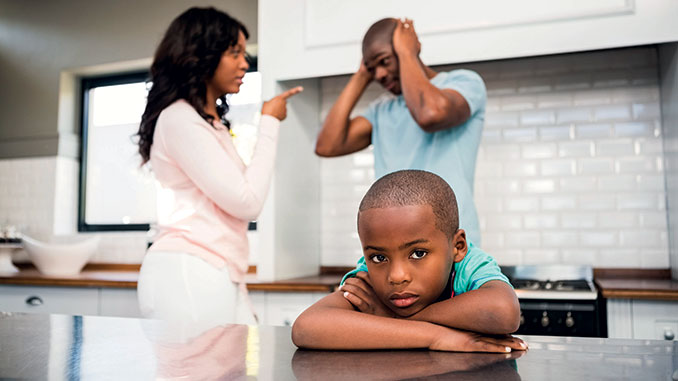
Covid pandemic puts added pressure on parents living separately but sharing their kids.
Published: August 12, 2020
By: Jennifer Jhon
Exes raising their children together face all sorts of challenges, but the Coronavirus pandemic has added unprecedented levels of strife to the mix.
The biggest problem in co-parenting is that COVID-19 wasn’t anticipated or contracted for in parenting plans, said Natalie Kay, a partner at Kelley Kronenberg Attorneys at Law who has been practicing for 10 years in family law.
Differences about COVID-19 are common among parents, whether they are together or not, she said. Some parents are not wearing a mask or social distancing, they are willing to take the kids to the grocery store or the beach, and they are visiting friends and family. “Other parents want to live strictly, keeping their bubble very small and not taking any chances on exposing the kids.”
It is tougher for co-parents, who are living separately but trying to comply with the parenting plan or adjust it to make sure their family stays safe and healthy, Kay said.
Coronavirus is hard even on co-parents who are used to cooperating with one another, Kay said, but if they’ve been fighting over their kids already, this is another thing they aren’t going to see eye to eye on. “They just don’t see it the same way.”
The fighting takes its toll on kids, who are bouncing back and forth, she said.
“Do we wear a mask? Not wear a mask?
Go to the grocery store? Go see a friend?”
Earlier this year, Kay wrote an article for parents encouraging them to work together, “because we’re all in this together, she said. “Let’s use this as a bridge to do a better job co-parenting. We all have the same goal of wanting kids to be safe and healthy.”
The hope is that co-parents can cooperate in weathering this storm.
“The goal of a parent plan is that you never even look at it. The two of you can work life out together, however it unfolds. That’s the ultimate goal.”
Exes who can manage that are ones she never hears from. “They don’t need lawyers involved in their co-parent decisions, and that’s amazing,” Kay said.
But many cannot work it out, for one reason or another, especially in the current climate. One parent thinks it is unfair for the other parent to have them for longer periods of time, or they feel it is unsafe.
The issue was such a problem that Broward County had to issue a temporary order “that basically told everybody you have to keep exchanging your children. You can’t hide behind the stay-at-home order,” Kay said. “It was a massive problem.”
The administrative order on April 2, 2020, was designed “to reduce the number of ‘emergency’ filings and hearings.” It states “each parent is prohibited from unreasonably restricting access to the child(ren) to the other parent” and “regular timesharing, as set forth in the parties’ Parenting Plan, shall continue.”
Kay said some co-parents were using the pandemic to try to alter their agreements, especially if the other parent was a medical professional.
“It was really, really sad, because when you’re talking about this kind of scary global situation that none of us have the answers for, to keep the continuity for your kids, and continue what they’re used to, is paramount. In their little minds, their whole routine was over. Everything they were used to happening, including the switch back and forth between mom and dad, it stopped.”
The more normal you could keep things for your children, the better, Kay said, “but you have people who are not going to see things that way and use this to keep their kids more.”
The court did rule in favor of medical professionals, she said. “The court said a parent should not have to choose between their profession and their children.”
This summer, travel has been the top point of contention among co-parents, Kay said. She recently witnessed a case where a mother wanted to take a 3-year-old on a plane to New York, but the father adamantly objected because of the Coronavirus risk. “We had to have a hearing on it, and a judge in Broward County had to make a decision.”
The judge ruled against the trip, she said, but “sometimes judges aren’t prepared to make that stand. It’s a tough call to make, and it is really a parenting decision.”
She also saw a case in which one parent fabricated a possible COVID-19 exposure to prevent the other parent from taking the kids on a road trip. “It runs the gamut with what people are going through.”
Because of that, “there are a lot of families that need the family bench,” she said. “Everything is being done by Zoom. We really haven’t skipped much of a beat.”
Experienced family practitioners can help parents resolve disputes — even without litigation. But sometimes what coparents need more than an attorney is a fresh set of eyes, Kay said. “Experienced family law mediators are very good at coming up with ideas to try to find some middle ground.” Some were judges on the bench, and now they mediate, she said.
Kay also recommended speaking with a good parent coordinator or a family therapist they’ve seen before. “They’re definitely a great resource for situations like this. It’s really just about finding the right way to bridge that gap, to bridge the gap of whatever that difference is.”
Many family law attorneys, including Kelley Kronenberg Attorneys at Law in Davie, provide free 30-minute consultations, she said, “so that’s always a resource as well.”
Kay recommended contacting the Broward Bar for recommendations. “If you are going to hire anybody, make sure they are well-versed in family law. Sometimes people dabble in this area of law. Make sure they have experience,” she said.
Jennifer Jhon is South Florida Family Life’s digital and social media editor.
